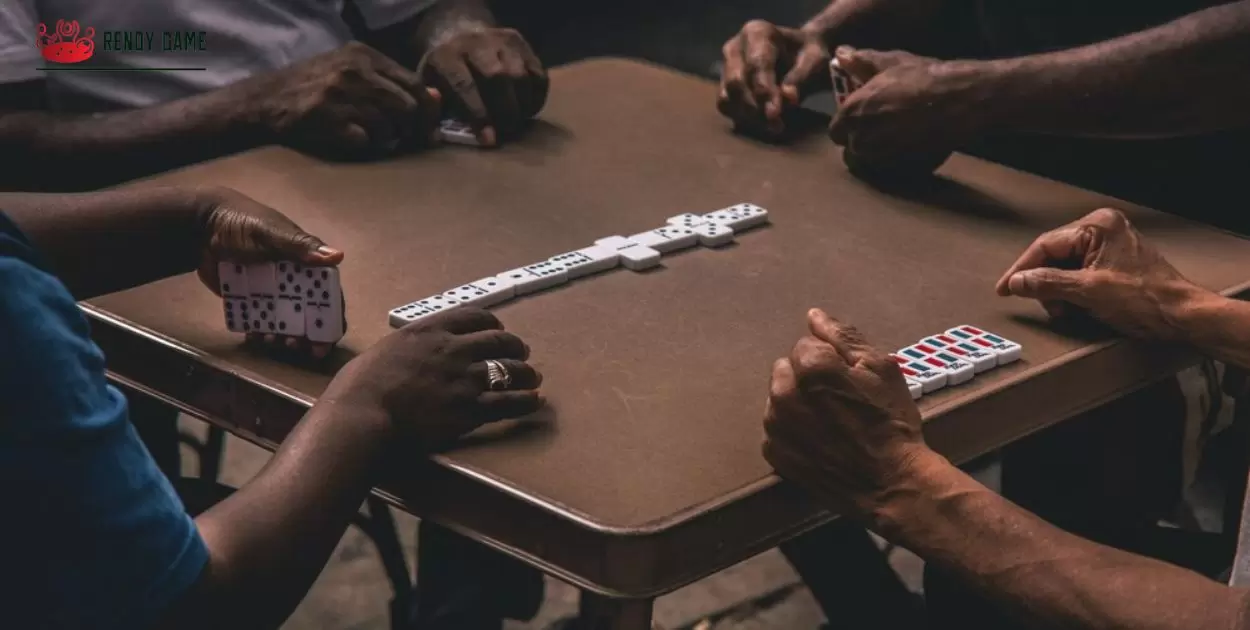Mafia has enraptured players at parties and gatherings for decades with its exciting gameplay centered around secrecy, deception and deduction. Participants are assigned to competing factions with hidden roles, and must uncover each other’s identities through clever bluffing and logic. This style of play builds lively group interaction and a sense of community trying to expose the enemy faction.
With Mafia’s immense popularity, many other social deception board games have implemented similar mechanics. One classic example that long-time tabletop gamers may be familiar with is Werewolf, a game that closely parallels Mafia in its secret role and elimination based gameplay.
Overview of Werewolf: A Game of Deception and Deduction
Werewolf is a social deduction party game in the same vein as Mafia. First created in 1986 by Dimitry Davidoff in Russia, Werewolf is themed around hidden roles and mistrust between villagers versus deadly werewolves secretly living among them, based on old folk tales.
Much like Mafia, Werewolf involves players being privately assigned to one of two competing factions secretly trying to eliminate the other:
- Villagers: Townspeople trying to identify and kill the werewolves hiding among them
- Werewolves: Werewolves pretending to be innocent villagers while secretly killing them off
Over the course of multiple daylight and nighttime phases, the villagers attempt to deduce who the covert werewolves are through discussion and voting people out. Meanwhile, the werewolves choose a villager to secretly “eat” each night. The game culminates when either all villagers or all werewolves are eliminated.
This thrilling gameplay centered around unveiling hidden roles, deception, and suspicion makes Werewolf an exciting choice for groups and a great alternative social deduction board game similar to Mafia.
How Werewolf Gameplay Unfolds: Days of Discussion and Nights of Terror
Werewolf gameplay takes place over a series of alternating day and night phases, with different mechanics during each:
Day Phases
During daylight periods, all players debate the identities of werewolves posing as innocent villagers. Open conversation allows persuasion, interrogation, scheming and arguments to flow freely. Players analyze others’ statements for slips or odd behaviors. Based on suspicious evidence, villagers openly vote to eliminate who they believe could secretly be a werewolf.
Night Phases
Under the veil of night, the rules change – werewolves secretly choose one villager to “eat” (kill). Meanwhile, all non-werewolves close their eyes, remaining unaware of the murderous werewolf pack’s actions.
Moderator Oversees Eliminations
A moderator oversees gameplay, tracking characters’ deaths and announcing when victims have been killed by werewolves. Each morning, the group discovers whether a fellow villager or werewolf was eliminated the previous night.
This cycle of public discussion phases and secretive werewolf team phases generates engaging deductive reasoning, bluffing, and plotting gameplay. Accusations fly trying to root out liars, while werewolves spew false suspicions to stay undiscovered.
History and Origin Story Behind Werewolf
Werewolf stems from the 1986 invention of the original “Mafia” party game by psychologist Dimitry Davidoff in Soviet Russia. Werewolf built upon the Mafia framework when a variant called “Lupus in Tabula” emerged in 1993, which replaced the Mafia theme with vicious werewolves terrorizing a medieval village.
Werewolf exploded in popularity in 1997 when Andrew Plotkin introduced his own spin dubbed “Werewolf” at a science fiction convention, moving the setting to an American Old West village plagued by werewolf outlaws. Plotkin simplified some convoluted rules from prior versions while integrating clever new character roles. This enduring Werewolf variant has many considering Plotkin the modern founder of the game.
Comparing Werewolf to Mafia: Additional Complexity
While Werewolf copies Mafia’s formula of two competing teams with secretly assigned roles informally eliminating each other, Werewolf tends to incorporate more variation through special character cards. These additional roles with unique abilities add intricacy. Some examples include:
- Seer: Each night probes another player’s role
- Prince: If killed, the Seer reveals clues about perpetrators
- Hunter: Kills one last player if eliminated
Plus dozens more special roles, allowing practically endless customization!
With brooding werewolves savagely killing off villagers instead of sneaky mafiasos, Werewolf also encapsulates a darker supernatural twist.
And while Mafia utilizes firearm shootouts, in Werewolf gruesome “devourings” replace violent gun killings.
Why People Love Playing the Thrilling Party Game Werewolf?

Beyond the deceit and deduction at its core, Werewolf offers a compelling social experience. The secrecy fuels lively discussion as villagers passionately defend their innocence and debate suspects.
Developing persuasion skills can save your in-game life! Manipulative body language, microexpressions, and verbal tells take center stage when trying to spot liars. As trust unravels, even long-time friends morph into possible foes.
The game often sparks excitement, laughter, intrigue, and camaraderie motivating players towards shared success.
Werewolf builds community – nothing is more satisfying than banding together with fellow townspeople to expose the enemy werewolves hidden among you.
Ultimately Werewolf offers a thrilling melding of psychological stimulation, emotion, engagement, and social fun through its core mechanic of deception.
Much like Mafia, Werewolf will have you second guessing motives, denying allegations with artful charisma, and scrutinizing every subtle behavioral clue.
If you enjoy the sneaky excitement of games like Mafia, Coup, or Bang!, test your detective skills and nerves of steel with Werewolf – you won’t be disappointed!
Other Notable Social Deduction Board Games
While Werewolf and Mafia might be the most well known, many other board games utilize social deduction with secret roles to create engaging gameplay dynamics. Some popular examples in the genre include:
A Fake Artist Goes to New York – Players cooperate to uncover one “fake artist” infiltrator through a fun drawing based party activity.
The Resistance: Avalon – In this strategy card game, players try to determine spy characters attempting to foil their covert mission plans.
One Night Werewolf – A wildly popular, faster-paced variant of Werewolf featuring changing roles over just a few rapid fire night phases.
Deception: Murder in Hong Kong – An exciting murder mystery game with competing forensic scientists versus an unknown killer.
Secret Hitler – Revolves around identifying covert fascists and Hitler in a politically themed alternative history.
Good Cop Bad Cop – Another hidden role game but featuring rival cops versus robbers instead of werewolves.
Sheriff of Nottingham – A bluffing and deal making game focused on lying about contraband goods for profit.
If you enjoy the manipulation, suspicion and secrecy that games like Mafia and Werewolf incorporate, give some of these other notable titles in the social deduction genre a try!

